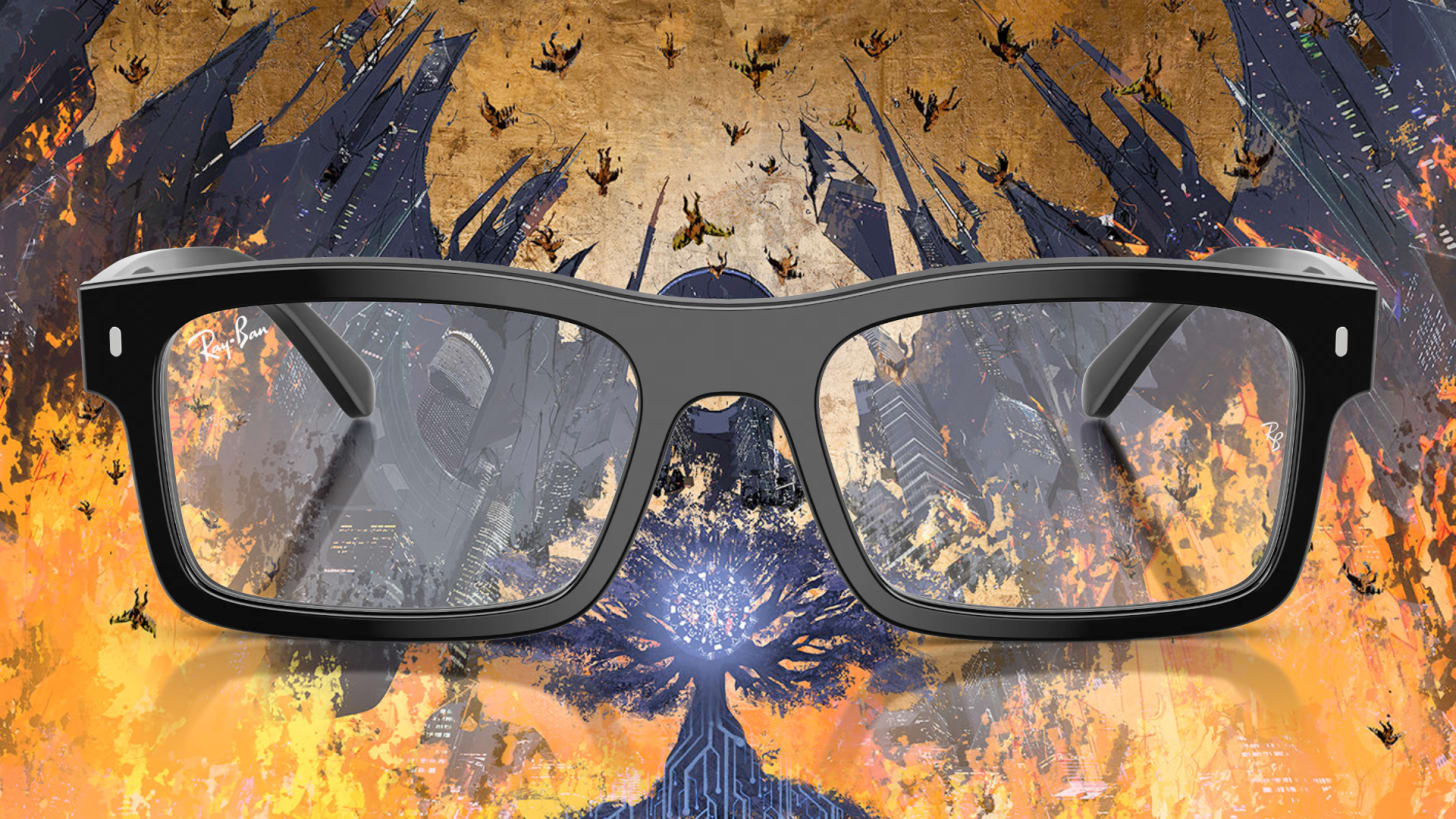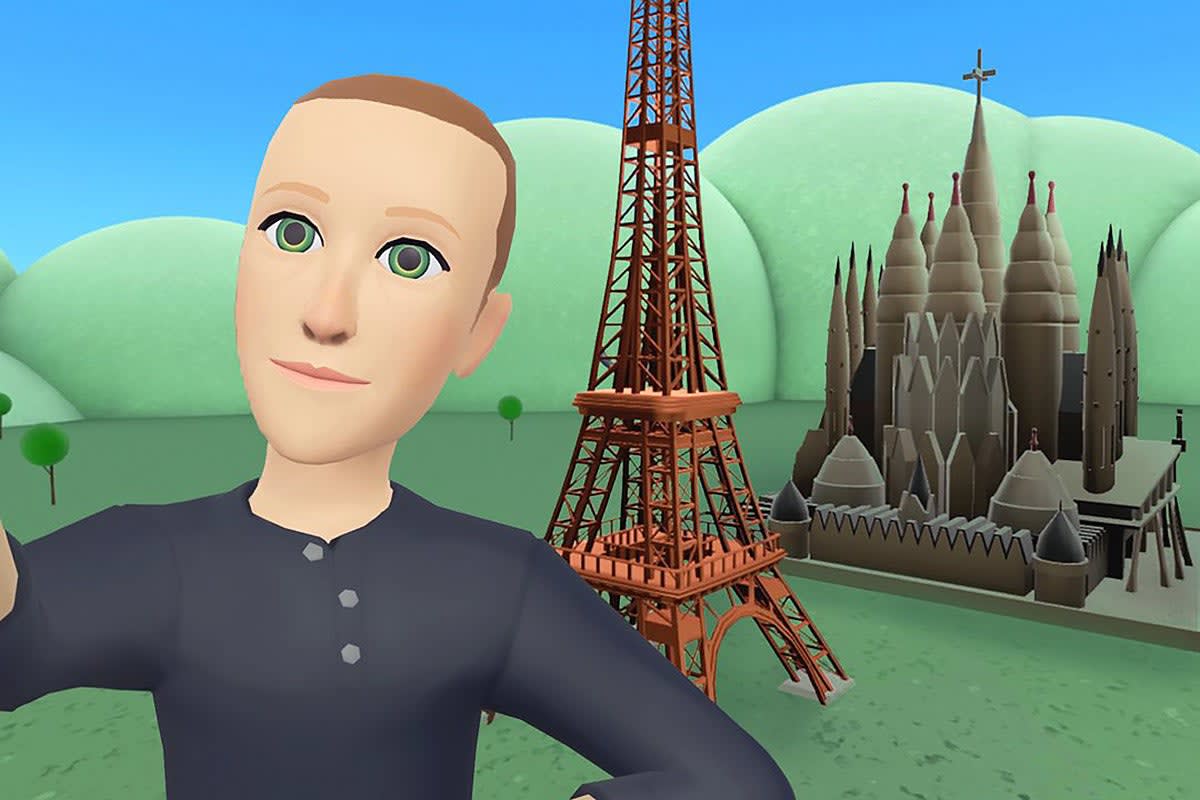Smart glasses are the next step for consumer tech and it appears Apple finally got the message. There’s a problem though, a big one: humanity isn’t ready. Not by a long shot.
We’ll get into all of this shortly, but first, the news itself. Reports surfaced this week that Apple’s pivoting away from the Vision Pro headset and is instead focusing on creating a pair of smart glasses.
It’s not tough to see why.
Apple’s business model is about scale. It wants to sell as many things as possible. You don’t become a trillion dollar company otherwise. Yes, Apple keeps some super high-end gear on its product roster (think the Studio Display or Mac Pro), but these have dedicated user bases and are often used by companies within the creative space. In other words, there’s money in these devices — both from a commercial and PR sense, as it bolsters the idea of the Mac as a tool for the inventive and imaginative.
The Vision Pro for all intents and purposes hasn’t been successful. While precise sales figures are hard to come by, Apple has reportedly shipped under one million units.
This by itself isn’t a huge cause for concern, but what is is the fact the Vision Pro hasn’t found a niche. There isn’t much of a dedicated, professional community to keep the hardware afloat.
I wouldn’t go as far to say that the Vision Pro is a failure (as I’ve written about before, the Vision Pro was more prototype than final product, so it was never expected to become a runaway success), but it didn’t capture people’s imagination in the way Apple hoped.
Culturally, this is unsurprising. Hulking headsets will never take off. Long story short, they’re aesthetically inelegant and they make people look like fucking weird losers.
Virtual Reality will have a thriving life in business settings — just imagine remote surgery or drone piloting — but wearing a headset at home or out in public is just straight up strange. It’s like those photos you see of people taking a desktop computer out to a coffee store. Technically they’re not doing anything wrong but you know they probably smell wild and you wouldn’t want to sit anywhere near them.

But Apple is anything but stupid. If the company missteps, it rectifies it quickly. It evolves: and that’s what’s happening with the Vision Pro. While the company did update the hardware this week, this was only minor, with a new chipset and strap. Hardly the sort of change that inspires excitement.
If the reports are true, the Apple’s future in the XR space is smart glasses. These will be broadly similar to the new Meta Ray-Bans (which are receiving rave reviews); a pair of glasses that can play music, take videos and photos, and have Siri support.
For Apple, this is wise move — because smart glasses are the future.
When it comes to a new bit of technology, I have a simple way of working out whether it’ll be successful. That’s by asking one straightforward question: how will this tech make my life easier?
As I’ve discussed in relation to AI, convenience is a core consideration in the success of any consumer-focused advance.
Let’s take one example: music. Records were replaced by CDs because the latter were more reliable and easier to change songs. MP3 players came next, and they allowed you to carry your entire music library in your pocket. And Spotify let you to listen to any song in the world from an app requiring no work to download and add the music.
Each evolutionary step provides a clear use case, a compelling reason of why you’d upgrade from records to CDs to MP3 players to a streaming app.
The opposite is also true. Let’s look at some technology that hasn’t taken off. NFTs, for example. This way of “owning” a digital image didn’t really solve a problem anyone actually had.
Nor, in this vein, did the metaverse. Everything that idea offered — from hanging out with friends in a virtual environment to going shopping — could be done easier with pre-existing technology.
This is why phones have been so revolutionary: they make everything easier. The rectangle resting in your pocket is the ultimate productivity and entertainment tool, it’s a Swiss army knife of modern life, allowing you to watch movies or book flights or learn a language or join meetings or do any manner of things. It’s no surprise phones have taken over the world. They’re so damn convenient.
But if there’s one piece of technology that could knock them from the top of podium it’s smart glasses. So, let’s apply my theory and ask the pertinent question: will smart glasses make your life easier?
The answer is an unequivocal “yes.”
Imagine you’re hungry. You ask your glasses to find you a good ramen spot. Three nearby locations show up on the screen with a short summary. You select one with your eyes. Once that happens, an overlay appears on the street in front of you, showing you the route to get there. When you arrive at the restaurant and sit down, you start tapping your feet to some music that’s playing. What is this song? You flick your eyes to a point on the display and the song is shown. All this without reaching into your pocket to grab your phone.
And this is simply one example — there are thousands and thousands more.
The benefits aren’t the only reason smart glasses are inevitable. There’s lots of tech that would be good for people (easily replaceable batteries in phones?) that simply isn’t done because it eats into profit. And that’s the thing: smart glasses are a huge opportunity for tech companies to make more money.
Think of it this way, as we’ve moved from PCs to laptops to smartphones, we’ve become increasingly intertwined with tech. We use it more regularly, it’s with us more often. This gives companies more data and insight into our lives, creating a rounder profile of us, allowing them to sell us more and more specific things.
Smart glasses are the next step in this data-hoovering journey.
Here, there would be a literal layer between our eyes and the real world. Tech giants can not only soak up everything we do, but can also define reality. Consider our previous example of asking a pair of smart glasses for ramen restaurants. What’s stopping Google or Apple selectively prioritising a restaurant that uses their products? Or deciding what to say about a specific landmark?
While a phone has a browser and different avenues to check information, it’s likely smart glasses will rely more on a voice assistant style interface that positions information as an ultimate truth.
One reason people use ChatGPT over a Google search is because of the way it relays information simply. You ask a question and you receive an answer. It’s not like trawling through a search page filled with contradictory messages. And although this is often the nature of life and knowledge, it’s not the most convenient.
Smart glasses would then not only be a goldmine, but would also represent a narrowing of our perspective.
And if there’s one thing I’m certain of, it’s that we’re not ready for this world.
Fundamentally, humanity still hasn’t worked out how to deal with phones. These devices have been proven time-and-time again to be damaging, impacting our mental health, our ability to socialise, and societal cohesion, yet we still haven’t developed proper social framework to protect us from phones, nor the regulations that should be required to shield us from their worst elements.
For example, the more time goes on, the more I’m convinced social media should be treated like cigarettes or alcohol and have a minimum use age. So much research points to the damage it has on young people that it feels ridiculous it hasn’t happened yet. But politics takes time. As do the emergence of ways to deal with devices on a personal level.
Despite that, we haven’t got there yet.
There is one bright spark in this mire though: we aren’t that close to the sort of smart glasses I’m describing. While the technology is coming, we’re still probably 5-10 years away from truly society-shifting smart glasses hitting the market.
And that gives us time.
Time to think what we do in a world where everything is being recorded, time to consider what life is like when we’re always plugged in, and time to ponder what to do when Big Tech can shape reality.
On one hand, I’m an optimist. I think we can deal with it. Having seen my younger siblings grow up on social media and with phones as an ever-present, it’s clear that lots of the reactionary statements about technology destroying new generations is bullshit. People are adaptable and, at their very core, good. Society won’t crumble with smart glasses.
But, on the other hand, it’s impossible to say that phones haven’t led to some pretty negative consequences for the world — and smart glasses will amplify this impact.
It is possible to get ahead of the curve, but if we don’t learn lessons from smartphones and set up ways of dealing with this new wave of technology, then things will get a lot worse before they get better.
We’re not ready for smart glasses yet, but we have time to get there. The question is, will we?
.png)





